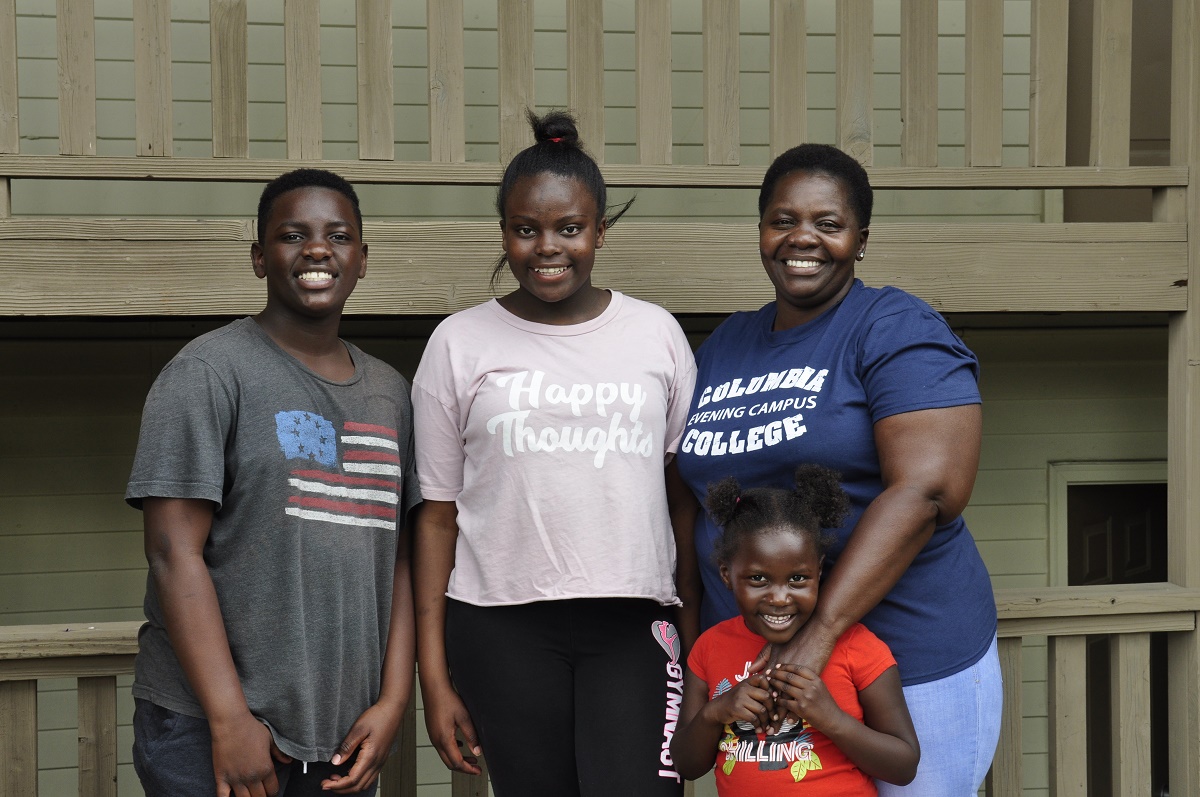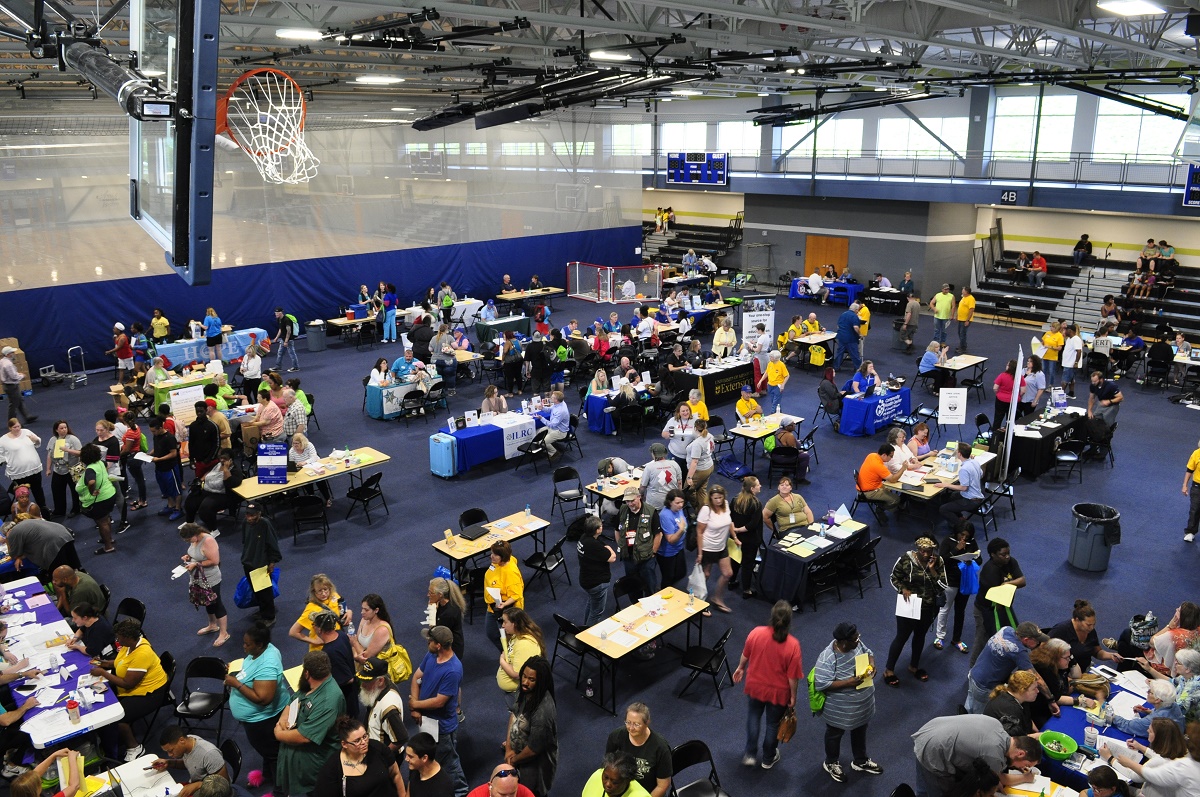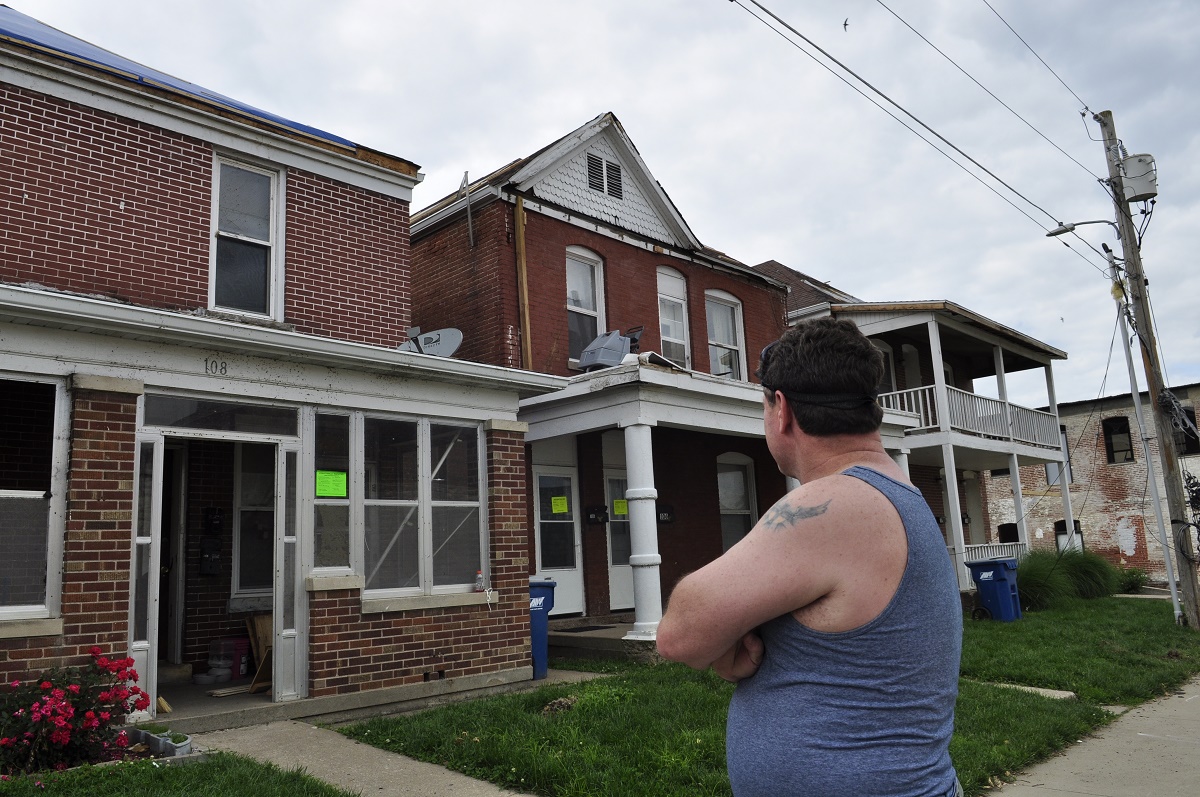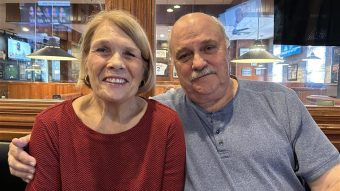May 31, 2019
Naomi Nyaberi and her three children were sound asleep May 22 when a tornado touched down in the dead of night and tore through their Jefferson City neighborhood. Ten-year-old Obama Nyaberi was the first in the family to hear the commotion.
When the boy peeked outside the apartment, he was met by a throng of startled neighbors and a sight he’ll never forget.

“All I could see were trees blown over and roofs gone,” he said. “I was shocked.”
Moments later he was joined by his mother and two sisters, Glory, 12, and Billiah, 4. Though damage to their apartment on Ellis Boulevard was minimal compared to others, the mayhem surrounding them was alarming.
The Nyaberis were among hundreds of people that night caught in the path of an EF-3 tornado that injured 20 people and ravaged a 3-square-mile area of Missouri’s capital city, located 30 miles south of Columbia. They’re also among those who have received help from the University of Missouri, accepting an offer of temporary housing to university employees, students and their families as well as those connected to Lincoln University displaced by the storm.
Nyaberi, a team care associate with the Ellis Fischel oncology unit at University Hospital, and her children are currently living in MU’s Tara Apartments until they can move back to Jefferson City in the near future. Before moving to Tara, the family was living temporarily in a local middle school.
“I am grateful for the help,” Nyaberi said.
Within hours of the storm, MU was offering assistance and resources. Mun Choi, president of the University of Missouri System, encouraged faculty, staff and students to volunteer while MU Health pledged up to $50,000 in financial support and provided first responders. The MU Police Department sent officers who helped monitor traffic and secure the damaged area. Members of the Mizzou baseball team also were on site of the Missouri Special Olympics in Jefferson City to help with clean up.
This week, MU Extension was among the agencies offering assistance at a one-stop shop at The Linc, a wellness and recreation center in Jefferson City. Hundreds of people filled the gym, where they moved from station to station, learning what services are available to help them reassemble their lives.

Pat Snodgrass, a housing specialist with MU Extension in Crawford County, said most of the people she talked with had lost everything. Many appeared to still be in shock.
“We’ve seen a lot of tears,” she said.
Among the materials MU Extension is sharing is information for parents about how to help their children deal with the tornado and its aftermath.
“I talked to one mother who said her child is struggling with terrible anxiety,” Snodgrass said.
Each summer, MU Associate Professor of History Jerry Frank teaches a two-week course on natural disasters. This year, his students saw firsthand how people are impacted by a natural disaster when his class volunteered to help with clean up. They were assigned to haul logs from the property of Bob and Bobbie Herman.
“The most powerful part for me was talking to the Hermans, who were so appreciative of all the volunteers who have helped them,” Frank said. “They weren’t nearly as upset by the destruction as they were moved by the fact that complete strangers were helping them.”
MU Extension also participated in a resource fair in Eldon. For more information about the university's role in Missouri's recovery, please refer to the University of Missouri System's resource and support page.

Jefferson City resident Frank Denton surveys the damage done to the apartment building where he lives. Denton said that the porch from the upper level of the building tore off in the middle of the storm and embedded itself into the wall of the old Missouri State Penitentiary across the street.



